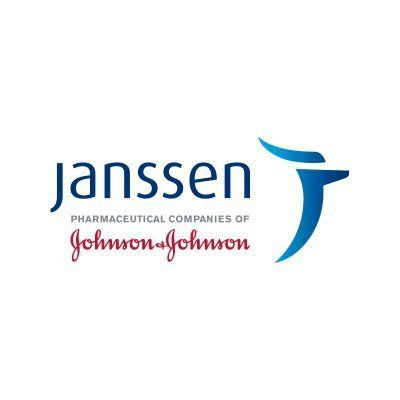Article
Nipocalimab Benefits Mechanism of HDFN in Phase 2 Trial
Author(s):
Janssen reported significant benefit, and a tolerable profile, for the investigative drug that may become the first indicated to treat HDFN.
Credit: Twitter

Janssen Pharmaceutical Companies of Johnson & Johnson have announced positive results from the phase 2 open-label UNITY clinical trial, which evaluated the use of nipocalimab for the treatment of pregnant individuals at high risk of early-onset severe hemolytic disease of the fetus and newborn (HDFN).1
According to the study, nipocalimab demonstrated the potential to address the underlying disease mechanism of early-onset severe hemolytic disease. If approved by the US Food and Drug Administration (FDA), nipocalimab would be the first anti-neonatal Fc receptor (FcRn) treatment and the first non-surgical intervention in the US for pregnancies at high risk of the disease.
HDFN occurs when the blood types of a pregnant individual and the fetus are incompatible, leading to life-threatening anemia in the fetus or infant in serious cases.
“It is invasive, requires access to specialist care, and is technically complex,” Katie Abouzahr, MD, vice president and autoantibody portfolio and maternal fetal disease area leader, Janssen Research & Development, told HCPLive in a recent interview. “Even in the best hands, it carries an increased risk of fetal morbidity, mortality, and premature birth. After delivery, neonates retain maternal alloantibodies for several weeks, putting them at risk of severe morbidity such as jaundice, anemia, and other life-threatening complications.”2
In the proof-of-concept trial, 92% of pregnancies treated with nipocalimab resulted in a live birth. Among those pregnancies, 54% achieved the primary endpoint of a live birth at or after 32 weeks of gestation without intrauterine transfusions (IUTs).
In a statement, Janssen highlighted the significance of improvement compared with the historic reference point of 10% as reported in previous data. The median gestational age at delivery for the patients who achieved the primary endpoint was 37 and 1/7 weeks.
Included in the trial were 13 patients, with 12 experiencing a live birth. Of the pregnancies meeting the primary endpoint, a single infant required a simple blood transfusion. In pregnancies that required an intrauterine transfusion, all live-born infants required transfusion.
The median gestational age at the first intrauterine transfusion was 28 and 3/7 weeks for those with live births. No cases of fetal hydrops were reported.
Nipocalimab was generally well tolerated in pregnant individuals at high risk for early-onset severe HDFN. There were no maternal or infant deaths reported, and the most frequently cited adverse events were events commonly reported in pregnancy or underlying hemolytic disease.
Serious adverse events were primarily related to the disease or various pregnancy-associated conditions, without any discernible relationship to the intervention.
"These phase 2 UNITY data in high-risk pregnancies demonstrated the important role that nipocalimab, an FcRn blocking antibody, may play in preventing the transfer of maternal alloantibodies through the placenta, thereby offering a potential treatment option for this devastating disease,” Abouzahr said in the statement.
The drug has been granted Fast Track designation and orphan drug status by the FDA and orphan medicinal product designation by the European Medicines Agency (EMA).
The data from the UNITY clinical trial will be presented for the first time at the Fetal Medicine Foundation World Congress in Valencia, Spain on June 26, 2023. Janssen is planning a pivotal phase 3 trial for nipocalimab in pregnancies at risk for severe hemolytic disease of the fetus and newborn.
References
- New Phase 2 Data Demonstrate Potential Benefit of Nipocalimab for Pregnant Individuals at High Risk of Early-Onset Severe Hemolytic Disease of the Fetus and Newborn (HDFN). Janssen. Press release. Published June 26, 2023. https://www.janssen.com/us/sites/www_janssen_com_usa/files/new_phase_2_data_demonstrate_potential_benefit_of_nipocalimab_for_pregnant_individuals_at_high_risk_of_early-onset_severe_hemolytic_disease_of_the_fetus_and_newborn_hdfn.pdf
- Pine L. Breaking the Blood Barrier: Understanding Hemolytic Disease of the Fetus and Newborn. HCPLive. Published March 27, 2023. https://www.hcplive.com/view/breaking-blood-barrier-understanding-hdfn





